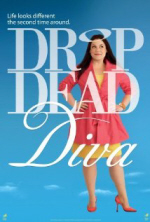 First, pop culture lawyers were heroes. Then, pop culture lawyers were devils. These two extremes capture most of what the world sees of lawyers—they are either pursuers or destroyers of justice based on the angle of perception or bias. However both of these extremes leave out a major aspect of every real American lawyer: their humanity.
First, pop culture lawyers were heroes. Then, pop culture lawyers were devils. These two extremes capture most of what the world sees of lawyers—they are either pursuers or destroyers of justice based on the angle of perception or bias. However both of these extremes leave out a major aspect of every real American lawyer: their humanity.
Let’s face it; most real lawyers are not as serious or somber as they have been portrayed for years across pop cultural mediums. Real lawyers like every other human being have their moments of weakness and self doubt, of romantic uplift and heartache, and of senseless comedic revelry. The development of the jester lawyer began with shows at the turn of the millennium such as “Ally McBeal” and “Boston Legal.” Both television shows featured large metropolitan law firms with a slew of jester lawyers for a cast. The humor however was based not in their humanity, but their quirks. The shows were just extended lawyer jokes featuring lawyers who were old and senile, neurotic and paranoid, or just plain weird, with catty women and dogs of men. In this era of television, while lawyers were beginning to demonstrate some depth through the moral issues they faced both in and outside their cases, and through their personal and romantic lives, the laughter was still aimed at the lawyer.
Two more recent lawyer comedy shows have hit the airwaves in the last few years and both, I would argue, feature jester lawyers as main characters who you laugh with more so than you laugh at. These two shows, “Drop Dead Diva” and “Franklin & Bash” feature young attorneys who often tap into their humanity to find creative and persuasive ways of winning their cases. These young attorneys both recognize and understand the things they are doing are both outlandish and likely unprofessional—but they invite the audience to laugh with them as they continue to seek justice in an often confusing legal system.
The audience in just one forty-two minute episode discovers that Franklin and Bash are more than attorneys; they are human beings (who one might like to grab a beer with some Friday night). They have their flaws. They are neither uptight nor too serious, but still face ethical dilemmas and personal challenges. They have good hearts and seek justice for their clients. This humanizing effect of the jester lawyer portrayal is further confirmed when the client in the season premiere says to Bash while discussing the effect of the case on his personal life and image, “For lawyers, you guys are almost human.”
“Drop Dead Diva,” now in its third season, features a character of similar depth and dimension. In the series premiere, Deb Dobkins—an aspiring “actor slash model”—dies in a car accident and wakes up in the body of Jane Bingum—a super-smart, slightly overweight attorney with a large metropolitan firm (Harrison Parker) who had been shot by the upset husband of her senior partner’s new mistress. Jane and Deb meld together into a blend of fashion-forward pop-cultural know-it-all and intelligent master of the legal profession. Both seem to be lacking something apart, but combine to create a character it is impossible not to love. With Jane’s legal wit and professional ethics, and Deb’s fashion sense and developed compassion, the lawyer that forms is one who can succeed in court but also come down to the client’s level and understand their feelings, motivations, and fears.
The main characters in these two newer legal comedies represent a new development in the pop cultural portrayal of the lawyer. While neither hero nor demon, nor caricature from a lawyer joke, these characters demonstrate the depth and dimension that attends being human. The audience is introduced not only to their professional careers, but also their personal lives. They struggle with legal issues, moral or ethical dilemmas, and significant others. Because they are portrayed as people to whom the audience can relate, their farcical behavior, which they recognize as such, gives the audience an opportunity to laugh with them rather than at them. This is arguably a wonderful next step in the pop cultural portrayal of the lawyer because unlike prior shows that placed attorneys in overly positive, negative, or comedic lights, the jester lawyer is a human being on equal footing with his or her audience.
